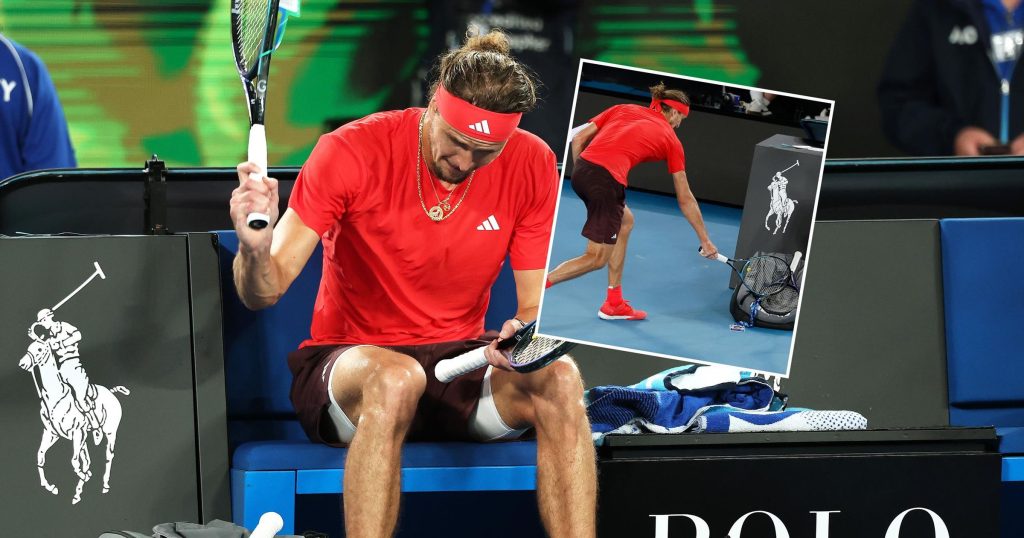Alexander Zverev found himself in a precarious situation during the Australian Open final against Jannik Sinner. Despite not playing poorly, the German trailed two sets to love after two hours of intense battle on Rod Laver Arena. The mounting pressure culminated in a visible display of frustration as Zverev, seated during the changeover, repeatedly slammed his racquet into another resting on his bag, involving a third racquet in the outburst. This act of equipment abuse, while momentarily cathartic for the player, underscored the tension of the match and the uphill battle he faced against the world No. 1. The incident evoked memories of Zverev’s past struggles with on-court anger, most notably his infamous outburst at the Mexican Open in 2022 where he struck the umpire’s chair, resulting in a suspended ban and deep regret.
The turning point in the second set, a closely contested tie-break, slipped away from Zverev after Sinner’s inside-out forehand clipped the net and landed in, a moment of luck that further fueled Zverev’s frustration. Commentators Nick Mullins and Tim Henman aptly captured the scene, with Mullins remarking on the unfortunate fate of Zverev’s racquets and Henman emphasizing the psychological impact of such a pivotal moment, highlighting how Sinner capitalized on the momentum shift to establish a commanding two-set lead. The task ahead for Zverev was daunting, requiring a monumental effort to overcome the deficit and reclaim control of the match.
This outburst of frustration from Zverev wasn’t an isolated incident in the emotionally charged atmosphere of the 2023 Australian Open. Daniil Medvedev’s explosive interactions with the in-net camera, resulting in significant fines, and Danielle Collins’ post-match criticism of the crowd further exemplified the high stakes and intense pressure of the tournament. These incidents highlighted the complex interplay of emotions and athletic performance, showcasing how even seasoned professionals can struggle to contain their frustrations under the scrutiny of a grand slam final.
Zverev, despite the setback and his emotional outburst, still possessed the tools and the opportunity to mount a comeback. With racquets to spare, he faced the challenge of regaining composure and finding a way to dismantle Sinner’s game. The final remained a captivating contest, promising a thrilling conclusion regardless of the outcome. The incident served as a reminder of the human element within the fiercely competitive world of professional tennis, where emotions often run as high as the stakes.
The Australian Open, like other grand slam tournaments, is renowned for its intense pressure and the heightened emotions it evokes in players. The pursuit of a prestigious title, coupled with the global spotlight, can push athletes to their limits, both physically and mentally. Zverev’s racquet-smashing incident, while regrettable, provided a glimpse into the psychological toll these competitions can take. It highlighted the fine line between passion and frustration, control and outburst, and the constant battle players face to maintain composure under immense pressure.
The incidents involving Zverev, Medvedev, and Collins served as a microcosm of the broader emotional landscape of the tournament. They underscored the importance of mental fortitude in professional tennis, a sport where managing emotions can be as crucial as mastering technique and strategy. The capacity to channel frustration and maintain focus, even in the face of adversity, often separates champions from contenders. While Zverev’s outburst may have momentarily relieved his frustration, it also underscored the challenge he faced in regaining control of his emotions and his match against the formidable Sinner. The remainder of the final promised a captivating display of skill, determination, and emotional resilience.










